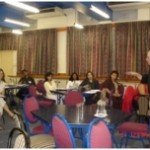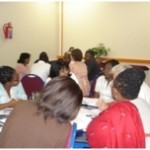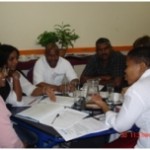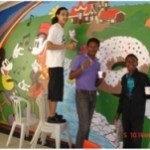Menu
- Fees Booklet
- Academic Calendar 2024
- Study Opportunities 2024
- House Committee Elections 2024
- Spring Graduation Ceremonies 2023
- SRC Online Elections 2023
- ENVISION2030 Institutional Awards
- Autumn Graduation Ceremonies 2023
- Court Order 29 Mar 2022
- Court Interdict application 28 Mar 2022
- Career Leaflets
- Handbooks
- Court Order – Forums Threat
- ENVISION2030
- Why Choose DUT
- “Missing Middle” application form
- NSFAS New Students
- NSFAS
- Honorary Doctorates
- DUTLink Newsletter
- Lecture Timetable
- Association of Commonwealth Universities
DUTLINK
Our Facebook Page
Contact:
Ms Judy Reddy
+27 031 373 2904
judyr@dut.ac.za
The projects and initiatives of this unit revolve around student development. In order to ensure that a holistic approach to student support is maintained, the unit focuses on identifying academic barriers to learning which could be psycho-social, academic or cultural. The unit assists in designing interventions that can address these barriers. The projects in this unit range from direct student support to the support of tutors and lecturers.
Student Testing
The access project focuses on assisting academic Departments with the development and implementation of entrance requirements and the correct selection and/ or placement of students into academic programmes. Currently the instrument used is the Standardised Assessment Test for Access and Placement (SATAP) that is divided into four tests; Language, Mathematics, Numeracy and Science. The project team is involved in the following activities relating to SATAP:
- the development of these tests (in conjunction with test developers from other higher education institutions nationally);
- the administration of the tests at DUT,
- marking, analysis of results and research on what the results of the tests tell us about student potential, areas requiring intervention.
Departments use these tests together with other discipline-specific selection placement instruments. The chosen test may also only be used as a diagnostic tool to assess the academic competence of students already registered. These results can be used to inform the curriculum design and learning and teaching interventions in the respective academic programmes. Departments are requested to firstly view the test for suitability before deciding on its use. The ultimate decision on the selection of students lies with academic Departments concerned.
The project team is also currently involved with the development and piloting of the National Benchmark Tests (NBTs) which is a HESA initiative being managed by the University of Cape Town (UCT). There are two tests available under the NBTs; an Academic Literacy Test that includes quantitative literacy and a Mathematics Test.
Contact:
Shoba Rathilal
+27 031 373 2771
shobar@dut.ac.za
Extended Curriculum Programmes
The Department of Education (DoHET) has made available funds for Extended Curriculum Programmes (ECPs) that are aimed at improving throughput and ensuring access and success. ECPs are currently offered in most faculties. The programme is intended primarily for students who meet the requirements for entrance but need some academic support to ensure success. Funding is allocated by the DoHET based on proposals submitted in three year cycles. DoHET have set criteria by which they allocate the funds. Currently there are three models that can be subscribed to.
Extended programme students are ultimately the responsibility of the academic Department in which the student is registered. The placement of students within the programme is done by using complimentary access tools such as entrance tests, interviews or questionnaires, etc. Each programme has an ECP co-ordinator. The central co-ordination of ECP is done in CELT.
Contact:
Shubnam Rambharos
+27 031 373 2189
rambhros@dut.ac.za
Prof Ian Scott (University of Cape Town) facilitates a
workshop for ECP Staff (above left) on Implications of student
performance patterns for development in South Africa: Key choices for
Universities of Technologies.
Recognition of Prior Learning (RPL) Co-ordination
CELT aims to implement RPL as a first-stop-office for all DUT applications. The RPL provisions, stipulations and conditions as outlined in the senate-approved RPL Policy will be adhered to. The philosophical approach to RPL shall be transformational and developmental within the context of access and redress.
The RPL office in CELT is currently instituting systems and formalising administrative logistics to ensure application forms are explicit and that approval through departments, faculty offices and Senate sub-committees follows a structured template of processes. Finally and most importantly, a series of awareness workshops are rolled out across DUT academic community.
Contact:
Sipho Zulu
+27 031 373 2386
zulusgr@dut.ac.za
Tutor Training and Development
The Tutor Training and Development Programme is one of CELT‟s strategies of addressing learning, teaching and assessment issues which have a direct bearing on student progression and success rates.
The Tutor Training and Development Programme will attempt to tackle the issue of student success by training and developing effective tutors and will ensure that:
- students are afforded the opportunity to engage with subject content;
- monitoring the impact on learning, teaching and assessment;
- encouraging ongoing curriculum development and enrichment, taking feedback from tutors and learners into consideration;
- empowering DUT postgraduate students by providing them with opportunities to mentor undergraduate students, especially first-year students.
Contact:
Sipho Zulu
+27 031 373 2386
zulusgr@dut.ac.za
First Year Student Experience
First year student experience (FYSE) is an institutional student development programme meant to build sustainable student communities of living and learning at the Durban University of Technology (DUT). FYSE aims at equipping first entry students with necessary knowledge and skills to successfully adapt to an alien and sometimes alienating tertiary education environment. Research indicates that the first year in tertiary education can be the ‘make or break’ phase of a student’s academic career due to: poor decision-making, incorrect choice of friends, low self-esteem, uncertainty as to career choice, difficulty aspects of the academic programme and lack of pre-university preparedness. FYSE programme resonates with the national projects such as the CHE-led Quality Enhancement Project and the national Student Success initiative funded by the Department of Higher Education and Training through its Teaching Development Grant. Also, the FYSE programme integrates the expertise of staff and departments from across the DUT to assist students with these issues thereby providing stable foundation and support structure for their academic, personal development and progress. In terms of the formal curriculum, the focus is on essential academic skills such as information and digital literacies and academic literacies. Through the weekly/fortnightly FYSE seminars facilitated mainly by Tutor Mentor Advisors, provision is made for student engagement in intellectually rewarding and morally edifying experience of being a DUT student. The cumulative effect of our curricular and co-curricular activities and interventions will be the grooming of citizens and professionals who will exemplify distinctive DUT graduate attributes.

Project Coordinator
Professor Livingstone Makondo
First year ECP students doing their Community
Engagement Project
Unit Members
 |
Ms Shubnam Rambharos ECP Co-ordinator Tel: +27 031 373 2189 Email: rambhros@dut.ac.za |
 |
Ms Shoba Rathilal Residence Education Programme (REP) Coordinator Tel: +27 031 373 2771 Email: shobar@dut.ac.za |
 |
Mr Sipho Zulu Staff Development Co-ordinator Tel: +27 031 373 2386 Email: zulusgr@dut.ac.za |
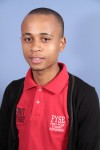 |
Mr Ntokozo Zulu Residence Education Programme (REP) Coordinator Tel: +27 031 373 2091 Email: ntokozoz@dut.ac.za |


